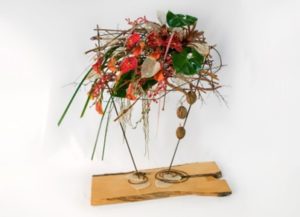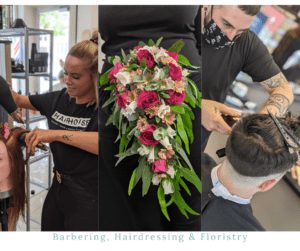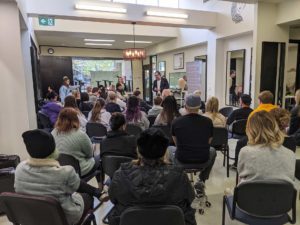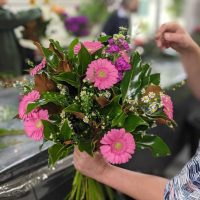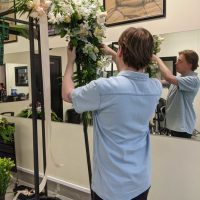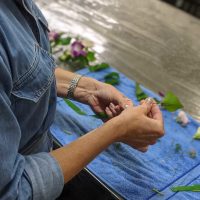[et_pb_section fb_built=”1″ _builder_version=”4.0.7″][et_pb_row column_structure=”2_3,1_3″ _builder_version=”4.0.7″][et_pb_column type=”2_3″ _builder_version=”4.0.7″][et_pb_post_title date=”off” comments=”off” _builder_version=”4.0.7″ global_module=”1053″ saved_tabs=”all”][/et_pb_post_title][et_pb_text _builder_version=”4.0.7″ hover_enabled=”0″]
START YOUR CREATIVE CAREER WITH MARJORIE MILNER COLLEGE IN 2016 AND #GETHAPPY
FLORISTRY, HAIRDRESSING, BARBERING AND BEAUTY MADE THE LIST.
It is official become a florists, hairdressers, barber or beauty therapists and you probably are the happiness people in the workforce. A report published in the Sydney Morning Herald yesterday confirms this.
[/et_pb_text][et_pb_gallery _builder_version=”4.0.7″ gallery_ids=”1187,1188″ show_pagination=”off” show_title_and_caption=”off” hover_enabled=”0″][/et_pb_gallery][et_pb_text _builder_version=”4.0.7″ hover_enabled=”0″]
Gardeners and florists are the happiest of all the professions and nearly twice as happy as people in more prestigious and better paid jobs, says a new book by a UK economist and behavioural scientist Professor Paul Dolan. Nearly nine out of 10 florists and gardeners say they are happy, he writes in his book, Happiness by Design, which has been described by some as one that may make you quit your job. The next happiest of the professions are those who spend their time making others more beautiful. Hairdressers and beauticians are happy 79 per cent of the time. In contrast, only 44 per cent of bankers said they were happy.
Professor Dolan of the London School of Economics and Political Science said more research was needed to find out why some professions were happier or unhappier than others. He will appear on a range of panels, discussing how to have a better life and be happier, at the Sydney Writers’ Festival, which opens on Monday 18 May. Often people may choose jobs that they think will provide happiness because they have status or are well paid, only to discover that these things aren’t what makes them happy. “Remember that future happiness cannot really compensate for misery now: Lost happiness is lost forever.” “So you need to be pretty confident that any current sacrifices of happiness you make in order to fulfil some ambition or other will actually be worth it in the long run.” “We do know people are happier with their lives over time if they are satisfied with aspects of their jobs like their boss, pay and daily tasks, which suggests it is most important that the job is a good fit for the individual type rather than the type of job per see,” he writes.
“This might explain why the happiest workers in the UK are florists and the least happy are bankers.”
Of course, he points out, florists could have started out happier than the bankers before they started work. With happy people choosing that profession, rather than the profession making them happy. Even without additional research, Professor Dolan said he was willing to bet that his children would be happier as builders as bankers as “they would more directly see their tangible fruits of their labour.” “I would much rather that they be builders than bankers,” he said. He added that banking could become a happier profession if it was redesigned . “If you are a florist, you have social interaction, you are seeing the fruits of your labour, and getting it quickly. That’s in contrast to banking and lawyers, where it is unclear where you can get that feedback, and people are not probably very thankful for what you do.” Only 48 per cent of IT and telecom workers say they are happy (must be all those people who don’t know how to find the “on” switch,) while only 54 per cent of HR and personnel staff.
THE HAPPIEST WORKERS ARE:
- Florists and gardeners, 87 per cent say they are happy
- Hairdressers (Barbers) and beauticians, 79
- Plumbers, 76
- Marketers and PR people, 75
- Scientists and researchers, 69
- Leisure and tourism workers, 67
- Construction workers, 66
- Doctors and dentists, 65
- Lawyers, 64
- Nurses, 62
- Architects, 62
- Child care and youth workers, 60
- Teachers, 59
- Accountants, 58
- Car workers and mechanics, 57
- Electricians, 55
- Caterers, 55
- HR and personnel staff, 54
- IT and telecommunications workers, 48
- Bankers, 44.
[/et_pb_text][/et_pb_column][et_pb_column type=”1_3″ _builder_version=”4.0.7″][et_pb_sidebar area=”sidebar-1″ _builder_version=”4.0.7″ global_module=”1039″ saved_tabs=”all”][/et_pb_sidebar][/et_pb_column][/et_pb_row][/et_pb_section]

